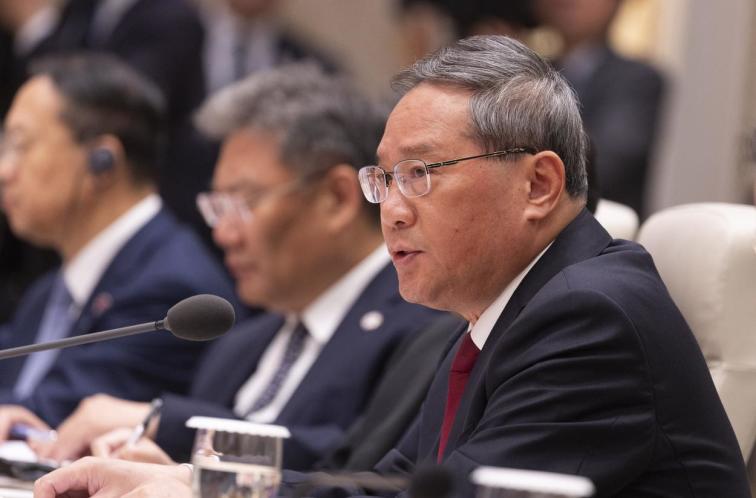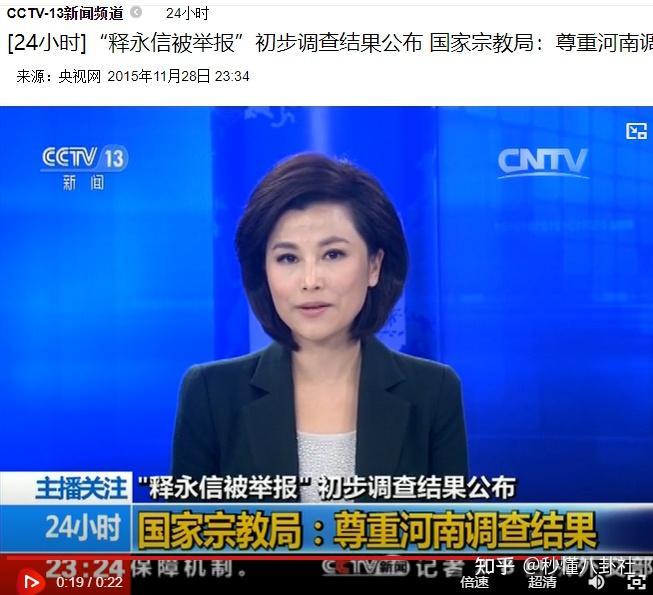File photo: On March 5, 2021, the day before the opening of China‘s National People‘s Congress (NPC), police patrol Tiananmen Square with dogs on a day of heavy air pollution in Beijing. (Photo by Kevin Frayer/Getty Images.)
[People News] Last month, the Politburo of the Communist Party of China (CPC) discussed the 'Regulations on the Work of the Central Decision-Making and Coordination Institution' in the morning. In the afternoon, a collective study session was held. Observers noted that during this session, 4 chairs remained unoccupied, yet documents and teacups were placed on them. Who was meant to occupy these chairs? And who was able to skip the afternoon session and leave partway through?
It is unusual for the CPC not to hold a Politburo meeting in May, leading to speculation about potential changes within the party's upper echelons.
The delayed June Politburo meeting only reviewed the 'Regulations on the Work of the Central Decision-Making and Coordination Institution' and asserted that this regulation is a crucial institutional arrangement to enhance the centralised and unified leadership of the CPC Central Committee over 'major work' and to facilitate the implementation of 'major tasks'.
What level of authority does the new regulation bestow upon the decision-making and coordination institution?
Professor Ming Juzheng from the Department of Political Science at National Taiwan University analysed in a program that its authority should surpass that of the Politburo. However, if its power exceeds that of the Politburo, why was it created in the first place?
Professor Ming proposed two possibilities.
The first is that Xi Jinping believes his command over subordinates is insufficiently strong. Thus, he seeks to centralise power to ensure that directives are effectively executed.
The second, which poses a greater risk, is that someone is attempting to usurp power from Xi Jinping.
Professor Ming continued his analysis by stating that if Xi Jinping still wields significant power, he is already the head of over a dozen groups, making it unnecessary to formally invoke the 'Regulations on the Work of Decision-Making and Coordination Institutions' to centralise authority. This raises the question: Is someone attempting a power grab? If so, the individual involved is rather overt, but such a possibility cannot be dismissed.
During last year's Third Plenary Session, rumours circulated that Xi Jinping's health issues had led to a loss of power. Professor Ming posits that the power grabbers are political elders. Figures like Hu Jintao and Wen Jiabao's faction, which originally represented legitimate factions within the party, are quite formidable. Their return to seize power would be entirely appropriate.
Professor Ming suggested that it is likely that Hu and Wen's faction is returning to take control, gradually using the 'Regulations on the Work of Decision-Making and Coordination Institutions' to undermine Xi Jinping or even push him out.
Additionally, observers noted the footage from the Politburo meeting on June 30, which revealed two extra rows of seats. However, during the afternoon collective study session, the first row had nine attendees, while the second row had only five, leaving four chairs unoccupied. What significant message might this convey?
Professor Ming remarked that in such high-level central meetings, having one more or one less person is unacceptable, and no one can simply slip in. Those who do not attend must have a valid reason for their absence.
He further analysed that while there were some empty seats in the second row, teacups and documents were present on the table. This suggests that someone was seated in the morning but not in the afternoon. The morning meeting was more critical, with full attendance, while the afternoon session was for collective study, allowing some individuals to be absent. So, who is permitted to skip the collective study? Professor Ming believes it should be officials of relatively high rank.
Those in lower positions are required to engage in collective learning, while those in higher positions often claim they do not need to learn and can simply attend meetings. As a result, the empty seats for collective learning in the afternoon, along with the teacups and document bags, reveal a significant amount of questionable information when compared to the morning session. Professor Ming also highlighted that it is normal for Xi Jinping to chair the meeting; otherwise, 'it would be over.'
Professor Ming asserted that it is now quite clear that the internal power struggle within the Communist Party of China (CPC) is extremely fierce. There are two main reasons for this: first, there are individuals who strongly oppose Xi Jinping; second, Xi Jinping's health is deteriorating.
The CPC functions as a black box, making it impossible for outsiders to gain insight. Professor Ming noted that until the final reveal day of the internal conflict, no one can discern who is genuine and who is not; until that day, it remains uncertain who will ultimately prevail or be defeated.
(Original report by People News) △











News magazine bootstrap themes!
I like this themes, fast loading and look profesional
Thank you Carlos!
You're welcome!
Please support me with give positive rating!
Yes Sure!